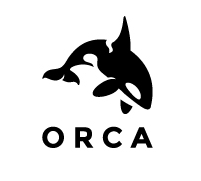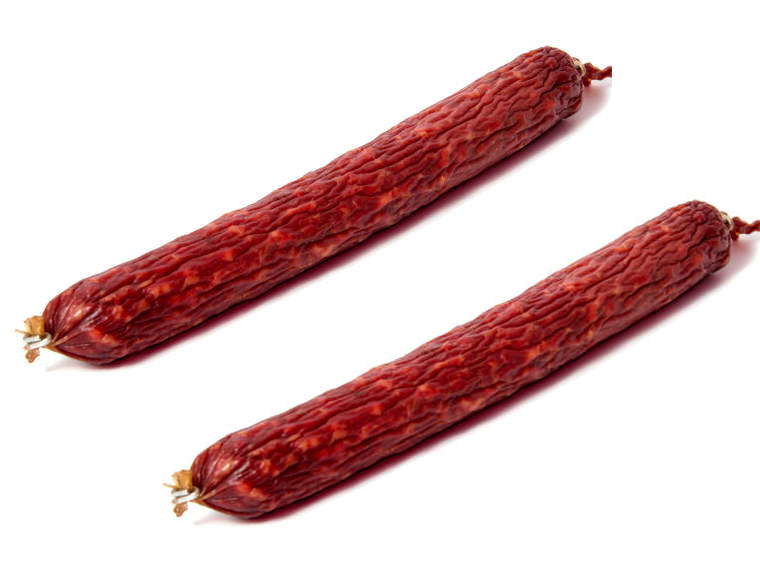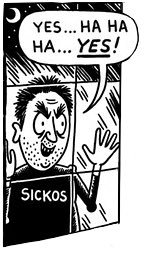Seriously, if you're a celeb over there and caught smoking a joint, your career is basically over.
Even the infamously prudish U.S. is more accepting of it.
I'm guessing it's a leftover of U.S, imperialism, like how all their porn is still censored.
You know there are other countries way more conservative than the USA right?
Your talking about a country that still has an emperor and hasn't had a empire in a long ass time.
In India at least weed was more accepted in the past when there were kings as shit.
I read a 33-page British paper from 1995 so you don't have to. (It's the first result for "why is japan anti drug" on Google, can't get the right link to it.)
Summary:
-
Japan's drug problem seems inconsequential to Westerners who see "urban decay, drive-by shootings, crack-addicted babies, and gang warfare", as none exist in Japan. However, many Japanese people still believe it is a serious issue.
-
Pre-war (before 1931) Japan was aware opium was used to undermine China and was already beginning to ban its use, importation, and instituted public education against it. Opium use was "not a problem in Meiji Japan".
-
Drug traffickers were able to make a profit in Europe/Americas -- they could not in Japan. (It also mentions cultural values later, though I'll try to summarize more materially. I assume you can draw your own conclusions what these economic conditions would mean ideologically.)
-
In the war period (1931-1945): "According to the League of Nations, 'one of Japan's first official acts following the formation of the puppet state of Manchoukuo was the creation of an opium monopoly which not only produced and sold opium but also manufactured derivative.'" Japan banned drugs at home while encouraging drug trafficking in the nations they occupied, to the point of manufacturing heroin/opium themselves.
Damn, it do be like that for capitalist states tho.
-
1940s/50s sees an economic depression and subsequent rise in drug use, along with stimulants (a vestige from the war) to increase factory productivity. Japan's drug laws mirrored America's by this time, although stimulants were not covered because America had no personal issue with stimulants. Later laws ban stimulants, however.
-
"Stimulants acquired such a bad reputation in the Japanese press that major drug dealers started to traffic narcotics instead." Early 1960s see methaqualone use rise. (I think it's a sedative, I dunno.)
-
Kurosawa's great film "High & Low" is released and has an excellent scene of the villain injecting a woman with heroine to test its purity, and the reflection of his sunglasses shows her dying. That's not in the paper, I just got bored.
-
Post-1960s sees stimulant arrests rise dramatically again. It also mentions the economy boom that leads to many young students rising in to the middle-class and now having disposable incomes for weed. I thought of Yakuza 0 where enemies are so rich money flies out of them when you punch them. Also, hippies.
-
Holy fuck there's a ridiculous amount of stimulants (legal/otherwise) on the Japanese market. No wonder they have coffee-in-a-can. Then again, we had 4Loko.
-
Cultural stuff: public education doesn't seem to reach that drug use is linked to material conditions. More Japanese than Westerners believe drug users are merely evil or have poor self-control, thus greater punitive measures. The Reagan administration also economically pressured Japan to join the "war on drugs", and Japan's punishments are the most severe in Asia.
-
Japanese police are also not allowed to use telephone wiretaps (didn't they use one in High & Low?), have weak subpoena power, and do not have the capacity to run undercover operations. Money laundering was also not initially illegal in Japan. (I wonder if the punitiveness has to do with that; needing harsher punishments, after which comes justification, after which harsher anti-drug attitudes filter to the populace who will not be terribly discerning between different types of drugs, etc.)
-
LMFAO: 'American agents, therefore, use undercover tactics to purchase drugs; then they tip off Japanese authorities, who arrive to make arrests and confiscate drugs. Perhaps one such instance occurred in February 1990, when Japanese authorities mysteriously 'found' 24 kilograms of cocaine smuggled from Peru in a Yokohama warehouse. News reports said that the seizure was a 'matter of luck'.
Anyway, hope that helps. It probably didn't.
I appreciate your candor. I also enjoyed the Kurosawa easter egg in your comment.
-
Anecdotally, last time I was in Japan a few people at a bar I was chilling at told me they believe weed to be poisonous. I was told that was a pretty common attitude. Although my first time in Japan someone at a club tried selling me some, so who knows really.
Also, interestingly the weed dealer called it "taima" (大麻) while the guys at the bar called it "marifuana" (マリファナ) and "ganja"
Dealer used a Japanese word, anti-weed guys used foreign loan words. Maybe that means something?
Also should be noted that "Fu" has a breathy F and they say that instead of "hu" for some reason.
There isn't really a "hu" in Japanese. They say "fu" instead, as in "Fujiyama" (Mt. Fuji) . If I recall, the aristocratic classes back in the day would actually pronounce the "breathy F" as more of a "hu" sound.
It's a similar situation as the infamous Japanese "R" sound that is halfway between an R and an L.
Yeah they say "ha hi fu he ho" - no idea what the connection is between H and U that it's such a weird exception
I think it has to do with "lazy" pronunciation merging them over time. The kana for the particle "wa" is also normally pronounced as "ha," the kana for the particle "e" is normally prounced "he," and so on.
Well smoking weed is what made me realize that God isn't real, money isn't real, and both we made up to justify the other.
There's probably way more to it than this (I've only read Graeber's Debt: The First 5000 Years) but apparently the emergence of money served the function of precisifying debt and credit across periods of time that track both cultural and material exchanges, rather than symbolizing goods exchanges proper. Similar to what Robotctrl is saying above, Graeber argues that institutional religions emerged as post-hoc justification for debtor and creditor practices, with unjust outcomes then being used as evidence for the providence of God. Again, haven't looked into the veracity of Graeber's account yet, but it tells an interesting tale and adds a bit of nuance to the idea that human history is the history of class struggle, where class gets cashed out in ancient times along creditor/debtor lines.
Feudal Japan tolerated homosexuality and orgies, at least among the noble class. I guess somewhere along the way, they became hyper-prudish, but I'll let a more educated Japanophile elaborate on the reasons. What's strange is how morally conservative modern Japanese are, despite the very low rates of religiosity. And even those religions (Shinto and Buddhism) are much more permissive than the Abrahamic faiths.
A lot of it is leftover from the modernization period, when the Japanese ruling class intentionally affected as many European mannerisms and attitudes as they could.
But there was a second wave of cracking down on degeneracy when they went fascist. Much like West Germany, the US put a lot of the fascists back into power when they took over after the war - and it's not like MacArthur was interested in pushing back against it.
You can look up an ukiyo-e painting of a woman fucking an octopus. It's not just a modern phenomenon.
Don't forget that "The Dream of the Fisherman's Wife," i.e. a woman getting eaten out by an octopus, was designed by Hokusai, whose "Great Wave" is probably the most well-knoen ukiyo-e print. It's generally argued that nearly all the famous ukiyo-e artists also did shunga (erotic pictures), and that something like 3/4 of all ukiyo-e prints in circulation were shunga.
At the same time, it was technically illegal to be making these things in the first place, since they had to be distributed without an official stamp from the government censor. So in Japan freaky shit and government censorship working hand in hand goes all the way back to the beginnings of modernity itself.
they definitely started out as a conservative feudal country before the hyperindustrial & military expansionist/fascist swing
East Asian countries generally have strict drug laws. You could attribute it to Confucian values (with drug use being an individual act that is harmful to the community)* or to the legacy of the opium wars, where a foreign power forced the drug laws of China to be lenient in order to flood the country with drugs.
*attributing cultural differences between the west and Asia to Confucianism is a little orientalist sometimes imo
I agree about overstating Confucianism, which doesn't explain how 1/3 of China could get addicted to opium if it's such an "individualistic" thing.
It's 100% the legacy of the opium wars. Funny thing though, Chinese culture doesn't care nearly as much about weed as South Korea, Japan, or Singapore. Marijuana grows wild in southwest China and little old ladies will often sell it in on the side of the road in places popular with foreign tourists.
Isn't most of Asia also intensely anti-drug?
I'm just going to assume a lot of it is the West having successfully exported their particular cultural neuroses across the world
I've heard that in past centuries (like prior to the 20th century) Koreans believed that weed had medicinal properties and they used it as part of their traditional medicine.
Depending on the historical doccument you like some Mongolian groups loved thr weed.
Famously the scythians used to smoke bathe in it. Just hot box an entire yurt. Which is based as hell.
My friend saw Sleep and Boris play in Japan and they said it was so weird seeing Sleep in a room that doesn't smell like weed.
The list of things that Japan is okay with is much shorter than the list of things that Japan flagellates itself over
Because Japan is a nation dream of every little nerd like Ben Shapiro. The norm is socially conservative, everyone has the same dumb hair cut, women are to be gentle and subservient, nationalism and obsession with being modern samurai in a suit. The worst thing you can do is fall out of line, ie taking a drug that someone is not profiting right now from.











